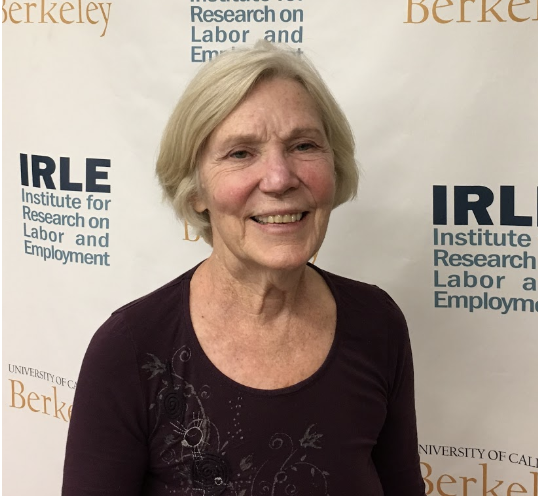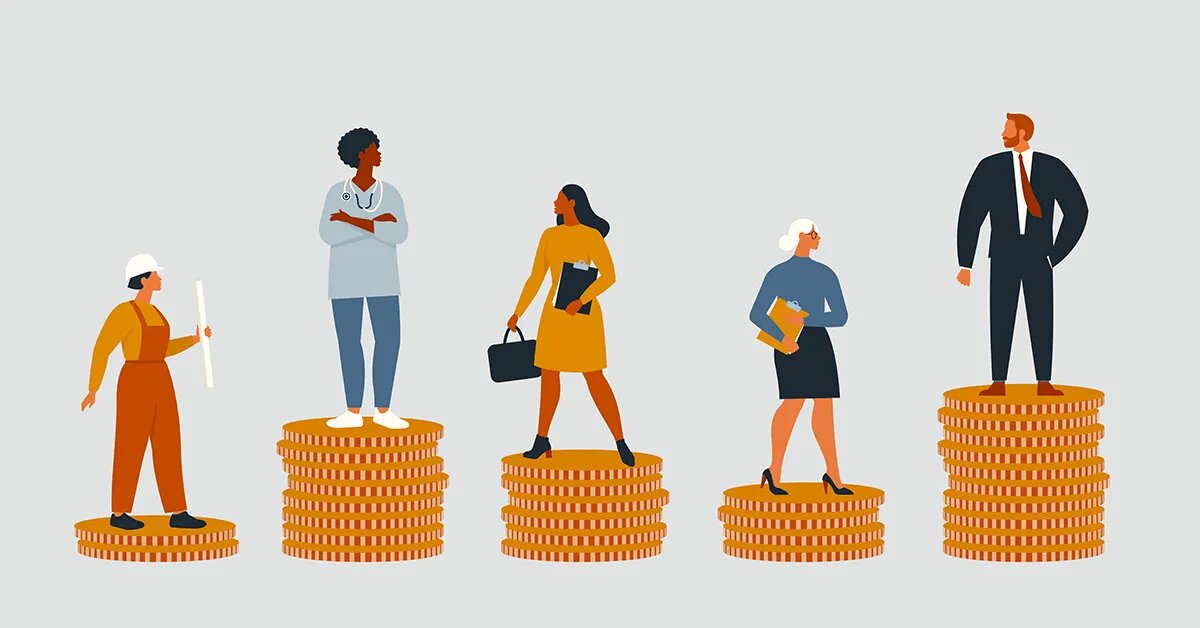
JEFFREY SUZUKI – NOVEMBER 6TH, 2019 COPY-EDITOR: SHAWN SHIN
Q: Hi professor! If you don’t mind, please introduce yourself to our readers. Why did you choose economics?
A: I saw economics as a field where people could really make a difference. The Women’s movement and the Civil Rights movement were both in full swing then. It was a field where people could change the world. For my dissertation, I studied how discrimination functioned in labor markets. Economics is an area where people could measure injustices in living standards and inequality. And this was all before we knew that there was a climate problem! And now we have economists studying this issue as well. Right now, I have a team of researchers studying sustainable policies across the world!
Q: You are known for being an outspoken proponent of what you call “Buddhist Economics.” What exactly is “Buddhist Economics?”
A: Buddhist economics is built upon three ideas; the first two are ecological assumptions. First, humans have interdependence with others and the planet—a buddhist idea—but also one that scientists have supported. It could be understood as the 4th Law of Ecology. Secondly, Buddhist Economics argues impermanence: the idea that nothing lasts forever. This is also a view espoused by scientists. Lastly, people actually care for each other in an altruistic way. This is not exactly a tenet of Buddhism as much as it has been shown by neuroscientists. All in all, Buddhist economics says that there is more to life than maximizing productivity or consumption. Because we are all interdependence and naturally care for each other, we should seek to improve the lives of others and act in accordance to our altruistic nature.
Q: What would you say to a wealthy businessman who claims that he earned his way to the top, and questions why his taxes should go toward some poor kid’s education? What if truly believes that he and his competitors’ greed is the grease that keeps our economy’s wheels spinning?
A: I would give two responses:
First, I would argue that he was able to do what he did because of his own education, which is a social program. His success is dependent on society’s ability to educate people like himself. Additionally, our infrastructure benefits him. Society ensures through health programs that his workers are able to provide labor. Society ensures that his workers are provided an education so that they can be more effective. The government ensures that he is able to safely work in a global economy and use its technology. His productivity—his success—is dependent on the system. And all of these programs are only possible through the taxes he and everyone else pays. The idea that he did it by himself is incorrect.
Secondly, economists argue for incentives. Every time someone has done a study for the returns to effort, it’s actually very little. As it turns out, people still work very hard when their taxes increase. Even if the returns to their labor decrease from taxes, they still make an effort to work hard. There are other factors that make people happy besides income, such as the general experience of working the job. Economists still argue whether we should increase progressive taxes to 72% or 76%. However, all of that aside, we had taxes like that in our history and there didn’t seem to be a substantial impact. We might not want to raise taxes to 98%—we want to make sure we have the revenues to make our social programs work. To put it simply, the businessman in your example would probably still work all the same.
Q: GDP has become the measure many economists use to calculate economic prosperity in the macro sense. Why do you think that this is a flawed measurement of welfare?
A: Because all it measures is what goes through the marketplace. Every economist will tell you it’s flawed. Even Simon Kuznets, the person who developed GDP, stated that it should not be used to indicate welfare. GDP leaves everything that is currently left out of the marketplace like leisure, home improvement, child care, environmental degradation, and a bunch of other important factors. Finally, any [negative] externalities of the marketplace are left out of GDP; we are leaving out the negatives of how we actually produce and consume. With GDP, we only measure our production and consumption.
Q: Besides GDP, what other metrics are currently available for economists to use that could be superior to GDP for measuring welfare?
A: There are lots of metrics. That’s part of the problem. It’s like the saying where if you ask five economists the same question, you get five different answers. But I can give some examples. One is the Genuine Progress Indicator, or GPI, which places a market value for all activities outside of the scope of the market. So, it gathers data on things like non-market labor, the use of time, environmental degradation, and all these other aspects that are not captured by GDP and places a market value on them. However, it takes a lot of data. In fact, GDP has the same problem but we’ve computed it for such a long time, spending billions of dollars to ensure that this metric is gathered. But discussions around welfare usually revolve around GDP per capita, which leads many people astray.
Q: How does GDP per capita lead us astray?
A: GDP per capita might be growing over time but it doesn’t account for the distribution of income. For most of the 20th century, GDP per capita and median household incomes are going up at the same time. But there is this big divide that happened in the late 70s because Reagan began to slash taxes. Ever since, a large amount of the growth in GDP has been captured by the top 5% and 1%. Industries became more concentrated. More income and power in industries allows wealthy individuals and corporations to buy elections. The impact on the environment is ignored. It has become a vicious cycle. This is all characteristic of living in a neoliberal world.
Q: Speaking of alternative measures of welfare, you have co-written an article on Project Syndicate with another researcher where you describe work on a policy index that compares 50 different countries around the world, called the Shared Sustainability and Prosperity Index (SSPI). Can you elaborate on what exactly it is—what it measures?
A: I have terrific team working on it right now! We’re going to expand the number of countries it covers and improve its indicators. It is still a work in progress, however. When I was having conversations about the impacts of policies, we would talk about certain countries having certain policies, such as increasing the education level of girls. We knew that certain policies had positive or negative effects. However, on a global level, I was curious about which countries actually have these policies. Which countries have policies that combat climate change? Which countries have policies that are spreading education in girls and women? Performance aside, we wanted to answer this question: “how do governments from around the world compare in terms of policy?” We try to answer this question by observing policies that indicate how countries govern, structure markets, and foster sustainability. I love markets, by the way. But it matters how we regulate and set up social safety nets to ensure that everyone can meet their potential.
Q: Once the [SSPI] is finished and ready, how do you expect it to be used?
A: That’s a great question! One of the things we learned is that these policies don’t change rapidly. There are many metrics for performance metrics. We asked that do policies track well with these performance metrics. In other words, do policies matter? And we were happy to find that they do. The policies that promote responsible governance, market structure, and sustainability track very well with economic performance. Some of my colleagues have noted that this seems to pave the way for justifying the Green New Deal.
Q: We’re starting to hit the end of this interview, so I’ll ask one last question: as you know, the UN estimates that there are only about 11 years left before emissions inflict irreparable damage to the Earth’s climate. Do you believe that societies around the world will be able to mobilize before the disastrous effects of climate change become irreversible, or that humanity will have to pay a hefty cost before learning its lesson?
A: I try really hard to be optimistic. However, I feel somewhat pessimistic. When people ask what we can do to combat climate change, I say that we need to fight. I worked with UC Regents and we persuaded them to divestment policies [from fossil fuel]. We have all sorts of projects in California. I worked with 350 Bay Area (a non-profit climate action advocacy group). We worked to ban single-use plastic. Did you know that we make single-use plastic out of fracking byproducts? We didn’t get the bills out this year but we will next year.
We all need to try to make a difference. But everyone needs to get out there and try to make an impact. People should join an organization or a club that advocates change. These fossil fuel industries intentionally mislead and they fight dirty. But the first step for people is to join a group, draft a strategy, and fight. We demanded that the [UC] Regents divest officially, and it worked. More like this can be done. It’s going to take a lot of work from everyone.
Q: That’s all the time we have today. I’d like to thank you for your time. It was a pleasure!
A: You’re welcome!
Disclaimer: The views published in this journal are those of the individual authors or speakers and do not necessarily reflect the position or policy of Berkeley Economic Review staff, the Undergraduate Economics Association, the UC Berkeley Economics Department and faculty, or the University of California, Berkeley in general.



